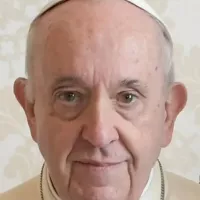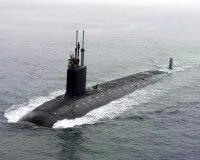Argentina, officially the Argentine Republic, is located in the southern half of South America. It is the second-largest country in South America and the eighth-largest in the world, covering an area of 2,780,085 km2. It shares the Southern Cone with Chile and is bordered by Bolivia, Paraguay, Brazil, and Uruguay. Buenos Aires is the federal capital and largest city. Argentina is a federal state subdivided into twenty-three provinces and one autonomous city. The country claims sovereignty over the Falkland Islands, South Georgia and the South Sandwich Islands, the Southern Patagonian Ice Field, and part of Antarctica.
1904: Argentina's presence in Antarctica
Argentina claims 965,597 km in Antarctica, where it has the world's oldest continuous state presence, since 1904.
1904: Foundation of La Voz del Interior
La Voz del Interior, a centre newspaper, was founded in 1904.
1908: Argentina's Economy
By 1908, Argentina had become the seventh wealthiest developed nation in the world due to European immigration and economic policies.
1910: Increase in exports
From 1870 to 1910, Argentina's wheat exports increased significantly, from 100,000 to 2,500,000 tons per year.
1912: Democracy period
From 1912–1930, Argentina was in a period of democracy.
1912: Enactment of universal male suffrage
In 1912, President Roque Sáenz Peña enacted universal and secret male suffrage.
1913: Argentina one of the wealthiest countries
In 1913, Argentina was one of the wealthiest countries in the world based on GDP per capita.
1916: Hipólito Yrigoyen wins the election
In 1916, Hipólito Yrigoyen, leader of the Radical Civic Union (or UCR), won the election.
1916: Elections
In 1916, the National Autonomist Party's dominance ended with the elections.
1917: First Animated Feature Film
In 1917, the world's first animated feature films were made and released in Argentina, by cartoonist Quirino Cristiani.
1918: Release of another Animated Feature Film
In 1918, Quirino Cristiani released another of the world's first animated feature films in Argentina.
August 1920: First Radio Broadcasting
On 27 August 1920, Argentina began the world's first regular radio broadcasting with a performance of Richard Wagner's Parsifal.
1920: Increase in Per Capita Income
Between 1862 and 1920, Argentina's per capita income went from 67% of developed country levels to 100%.
1930: Armed forces overthrow
Between 1930 and 1976, the armed forces overthrew six governments in Argentina.
1930: Military coup
In 1930, Yrigoyen was ousted from power by the military led by José Félix Uriburu.
1930: First coup d'état
In 1930, the Great Depression led to the first coup d'état led by José Félix Uriburu, beginning the "Infamous Decade".
1930: Golden Age of Tango Begins
The golden age of tango began in 1930, mirroring the popularity of jazz and swing in the United States.
1943: Military coup
In 1943, a military coup d'état led by General Arturo Rawson toppled the constitutional government of Ramón Castillo.
1943: Coup d'état
In 1943, another coup d'état occurred as part of the "Infamous Decade".
1944: Juan Perón named Defence Minister
In 1944, Juan Perón was named Defence Minister.
March 1945: Declaration of war on the Axis Powers
In March 1945, Argentina declared war on the Axis Powers under pressure from the United States.
1945: Arrest of Juan Perón
In 1945, Juan Perón was forced to resign and was arrested.
1946: Democracy period
From 1946–1955, Argentina was in a period of democracy.
1946: Creation of The Madí Movement
In 1946, Gyula Košice and others created The Madí Movement in Argentina, which later spread internationally.
1946: Election of Juan Perón as president
In 1946, Juan Perón became president after a victory in the general election.
1946: Rise of Juan Perón
In 1946, The Labour Party came into power with the rise of Juan Perón to the presidency.
1947: Bernardo Houssay Nobel Prize
In 1947, Bernardo Houssay received the Nobel Prize in Physiology or Medicine for his discovery of the role of pituitary hormones in regulating glucose in animals.
1947: Women's suffrage
In 1947, Congress enacted women's suffrage.
1948: Infant Mortality in 1948
In 1948, infant mortality in Argentina was 70 per 1000 live births.
1950: Decline of the economy
In 1950, the economy began to decline due in part to government expenditures and the protectionist economic policies.
1951: La Pampa and Chaco become provinces
In 1951, La Pampa and Chaco became provinces in Argentina.
1951: Re-election of Juan Perón
In 1951, Perón managed to get re-elected.
1952: Death of Eva Perón
In 1952, Eva Perón died of cancer.
1953: Misiones become provinces
In 1953, Misiones became a province in Argentina.
1953: Mortality Patterns in 1953
In 1953, deaths from cardiovascular disease accounted for 20% of the total deaths in Argentina, while infant deaths were 19%.
1955: Rise of Nuevo Tango
After 1955, Astor Piazzolla popularized Nuevo tango, a subtler and more intellectual trend for the genre.
1955: Democracy period
From 1946–1955, Argentina was in a period of democracy.
1955: Arrest of Cipriano Reyes
In 1955, Cipriano Reyes, a meat-packers union leader, was arrested on charges of terrorism and tortured in prison.
1955: New provinces
In 1955, Formosa, Neuquén, Río Negro, Chubut and Santa Cruz became provinces in Argentina.
1955: Deposition of Perón
In 1955, during the Liberating Revolution coup, Perón was deposed and went into exile in Spain.
1955: Bombing of Plaza de Mayo
In 1955, the Bombing of Plaza de Mayo occurred, marking an individual case of state-sponsored terrorism.
1957: First research reactor built with homegrown technology
In 1957, Argentina was the first country in Latin America to design and build a research reactor with homegrown technology, the RA-1 Enrico Fermi.
1958: Arturo Frondizi wins the election
In 1958, Arturo Frondizi from the UCR won the general election.
1960: Precipitation change measurement
Climate change in Argentina is predicted to have significant effects. From 1960–2010, the highest increases in precipitation have occurred in the eastern parts of the country.
1961: Antarctic Treaty
All claims in Antarctica fall under the provisions of the 1961 Antarctic Treaty, of which Argentina is a founding signatory.
1962: Coup d'état
In 1962, another coup d'état occurred.
1963: Arturo Illia elected
In 1963, Arturo Illia was elected and led an increase in prosperity.
1966: Military coup
In 1966, Arturo Illia was overthrown by another military coup d'état led by General Juan Carlos Onganía.
1966: Coup d'état
In 1966, another coup d'état occurred.
1969: First artificial heart
In 1969, Domingo Liotta designed and developed the first artificial heart that was successfully implanted in a human being.
1969: Massive protests
In 1969, popular discontent led to two massive protests: the Cordobazo and the Rosariazo.
1969: Targeting of trade unionists
In 1969, trade unionists were targeted for assassination by Peronist and Marxist paramilitaries.
1970: Luis Leloir Nobel Prize
In 1970, Luis Leloir received the Nobel Prize in Chemistry for his discovery of how organisms store energy converting glucose into glycogen.
1971: Alejandro Agustín Lanusse Appointed President
In 1971, Alejandro Agustín Lanusse was appointed president by the military junta.
1972: Trelew massacre
In 1972, the Trelew massacre took place.
March 1973: Cámpora wins election
In March 1973, Cámpora won the election.
May 1973: Hector Cámpora Takes Office
In May 1973, Hector Cámpora took office as Perón's surrogate candidate.
July 1973: Resignation of Cámpora and Lima
In July 1973, Cámpora and Vice President Vicente Solano Lima resigned, calling for new elections.
September 1973: Election of Perón
In September 1973, Perón won the election with his third wife Isabel as vice-president.
1973: Goods transported by rail
By 1991, Argentina's railway system was transporting 1,400 times less goods than it did in 1973.
1973: Democracy period
From 1973–1976, Argentina was in a period of democracy.
1973: Actions of the Argentine Anticommunist Alliance
In 1973, the Argentine Anticommunist Alliance commenced its actions.
July 1974: Death of Juan Perón
In July 1974, Juan Perón died, and Isabel Perón succeeded him in office.
1974: Death of President Juan Perón
Following the death of President Juan Perón in 1974, his widow and vice president, Isabel Perón, ascended to the presidency.
1974: First commercial nuclear power plant in Latin America
In 1974, Argentina became the first country in Latin America to put in-line a commercial nuclear power plant, Atucha I.
1975: Annihilation decrees
In 1975, Isabel Perón issued "annihilation decrees" against left-wing guerrillas during Operativo Independencia (Operation Independence).
1976: Armed forces overthrow
Between 1930 and 1976, the armed forces overthrew six governments in Argentina.
1976: Ousting of Isabel Perón
In 1976, Isabel Perón was ousted by the military.
1976: Final coup
In 1976, Isabel Perón was overthrown in the final coup.
1976: The Proceso shutdown of Congress
In 1976, the Proceso shut down Congress, removed Supreme Court judges, banned political parties and unions, and employed forced disappearances of suspected guerrillas and left-wing individuals.
1977: ERP subdued
By 1977, the ERP (People's Revolutionary Army) was completely subdued by the Proceso.
1978: World Cup Victory
In 1978, the Argentina men's national football team won the World Cup.
1979: Montoneros counterattack
In 1979, the severely weakened Montoneros launched a counterattack, which was quickly put down, securing the junta's position in power.
1980: Argentina Wins World Team Cup
In 1980, Argentina won the World Team Cup for the first time.
1981: Davis Cup Final
In 1981, the Argentine team played the final in the Davis Cup, where they lost against the United States.
March 1982: Argentina invades the Falkland Islands
In March 1982, Argentine forces took control of South Georgia and invaded the Falkland Islands, leading the United Kingdom to dispatch a task force in response.
1983: Transition to democracy began
Following a transition that began in 1983, full-scale democracy in Argentina was reestablished.
1983: Argentina admitted having the capability of producing weapon-grade uranium
In 1983, Argentina admitted having the capability of producing weapon-grade uranium.
1983: Election of Raúl Alfonsín
In 1983, Raúl Alfonsín was elected as president, ending the Dirty War.
1983: Raúl Alfonsín wins the elections
In 1983, Raúl Alfonsín won the elections campaigning for the prosecution of human rights violations during the Proceso.
1983: Completion of Embalse nuclear power station
In 1983, the Embalse nuclear power station, which employed 30% Argentine-built components, was completed.
1984: César Milstein Nobel Prize
In 1984, César Milstein shared the Nobel Prize in Physiology or Medicine for his research in antibodies.
1985: Academy Award for The Official Story
In 1985, the Argentine film "The Official Story" won the Academy Award for Best Foreign Language Film.
1986: World Cup Victory
In 1986, the Argentina men's national football team won the World Cup.
1987: Foundation of Página/12
Página/12, a leftist newspaper, was founded in 1987.
1989: Carlos Menem wins the election
In 1989, Carlos Menem won the election amidst a worsening economic crisis and hyperinflation, leading to Alfonsín's early resignation.
1990: Launch of LUSAT-1
In 1990, Argentina launched LUSAT-1, marking an advance in the country's space research program.
1990: Forest cover measurement
In 1990, Argentina's forest cover was 35,204,000 hectares.
1990: Tierra del Fuego became the Tierra del Fuego, Antártida e Islas del Atlántico Sur Province
In 1990, Tierra del Fuego became the Tierra del Fuego, Antártida e Islas del Atlántico Sur Province.
1991: Goods transported by rail
By 1991, Argentina's railway system was transporting 1,400 times less goods than it did in 1973.
1991: Establishment of CONAE
In 1991, Argentina established CONAE, its national space agency, which has since launched two satellites and secured international agreements for mission support.
1991: Argentina sends warships and cargo planes to Gulf War
In 1991, Argentina sent warships and cargo planes to the Gulf War under UN mandate, making it the only South American country to do so.
1994: Constitutional Amendment
In 1994, a Constitutional Amendment allowed Menem to be elected for a second term.
1994: Air Force provided the UN Air contingent in Cyprus
Since 1994, the Argentina's Air Force has provided the UN Air contingent in Cyprus (UNFICYP), contributing troops along with the Army and Marines.
1995: Economy begins to decline
In 1995, Argentina's economy began to decline, with increasing unemployment and recession.
1996: Launch of Víctor-1
In 1996, Argentina continued its space endeavors with the launch of the satellite Víctor-1.
1999: UCR returns to presidency
In the 1999 elections, the UCR, led by Fernando de la Rúa, returned to the presidency.
1999: Cable and Satellite Television
Since 1999, Argentina had the highest availability of cable and satellite television in Latin America.
December 2001: December 2001 Riots
In December 2001, massive riots forced De la Rúa to resign as president of Argentina.
2001: Argentina crisis
Argentina's democracy endured through the 2001–02 crisis.
2002: Radio Stations in 2002
By 2002, Argentina had 260 AM and 1150 FM registered radio stations.
2002: Economic crisis recedes
By late 2002, the economic crisis began to recede in Argentina, but the assassination of two piqueteros by the police caused political unrest.
2002: Argentina Wins World Team Cup
In 2002, Argentina won the World Team Cup.
2002: Latin American integration
Since 2002, Argentina has emphasized its key role in Latin American integration.
2002: Improvement in income distribution
Since 2002, Income distribution has improved in Argentina, though it is still considerably unequal.
May 2003: Néstor Kirchner sworn in
On May 26, 2003, Néstor Kirchner was sworn in as the new president of Argentina.
2004: Extent of paved roads
By 2004, 69,412 km of paved roads interconnected Buenos Aires, all provincial capitals except Ushuaia, and all medium-sized towns.
2004: Poverty Rate
In January 2024, Argentina's poverty rate reached 57.4%, marking the highest poverty rate in the country since 2004.
2005: Mortality Patterns in 2005
By 2005, deaths from cardiovascular disease increased to 23% of total deaths, while infant deaths decreased to 3%.
2006: Latin America Healthcare Ranking
In 2006, Argentina ranked fourth in Latin America in healthcare levels.
2007: Launch of PEHUENSAT-1
Argentina launched PEHUENSAT-1 in 2007 as part of its ongoing satellite program.
2007: Humanitarian aid to Bolivia
In 2007, Argentina sent a contingent, including helicopters, boats, and water purification plants, to assist Bolivia in response to severe floods.
2007: Argentina Wins World Team Cup
In 2007, Argentina won the World Team Cup.
2007: Cristina Kirchner wins election
In 2007, Cristina Kirchner won the elections and became president of Argentina.
2007: Highest Result in Rugby World Cup
In 2007, Los Pumas achieved their highest-ever result in the Rugby World Cup, coming third.
2008: CONICET Poll on Religion
According to a 2008 CONICET poll, 76.5% of Argentines were Catholic, 11.3% Agnostics and Atheists, 9% Evangelical Protestants, 1.2% Jehovah's Witnesses, and 0.9% Mormons.
2008: Operating railway lines
In 2008, Argentina's railway system had 36,966 km of operating lines, making it the largest in Latin America.
June 2009: Agreement with ESA
In June 2009, CONAE secured an agreement with the European Space Agency (ESA) to install a 35-m antenna and mission support facilities at the Pierre Auger Observatory.
2009: Víctor Galíndez's Record
As of 2009, Víctor Galíndez held the record for consecutive world light heavyweight title defenses.
2009: Infant Mortality in 2009
By 2009, infant mortality had decreased to 12.1 per 1000 live births, and life expectancy was 76 years.
2009: Academy Award for The Secret in Their Eyes
In 2009, the Argentine film "The Secret in Their Eyes" won the Academy Award for Best Foreign Language Film.
2009: Participation in the Americas Rugby Championship
Since 2009, the Jaguares have competed in the Americas Rugby Championship.
2010: Genetic Ancestry Study
A 2010 study by Argentine geneticist Daniel Corach found that the average genetic ancestry of Argentines is 79% European, 18% indigenous, and 4.3% African.
2010: Precipitation change measurement
Climate change in Argentina is predicted to have significant effects. From 1960–2010, the highest increases in precipitation have occurred in the eastern parts of the country.
2010: University Graduation Rate
In 2010, 7.1% of people over age 20 had graduated from university in Argentina.
2010: Legalization of Same-Sex Marriage
In 2010, Argentina legalized same-sex marriage, becoming the first country in Latin America to do so.
2010: Argentina Wins World Team Cup
In 2010, Argentina won the World Team Cup for the fourth time.
2010: Literacy and Secondary School Completion Rates
In 2010, Argentina's literacy rate was 98.07%, and 38.5% of people over age 20 had completed secondary school.
2010: Humanitarian responses in Haiti and Chile
In 2010, the Armed Forces of Argentina were involved in humanitarian responses in both Haiti and Chile following earthquakes in those countries.
2010: 2010 Census Results
In 2010, the population count was 40,117,096 inhabitants, according to the census.
2011: Internet and Mobile Phone Coverage
By 2011, about 67% of Argentina's population had internet access, and the ratio of mobile phone subscriptions to population was 137.2%.
2011: Defence budget at a historical minimum
In 2011, Argentina's defence budget reached a historical minimum of about 0.74% of GDP, falling below the Latin American average.
2011: Manufacturing sector growth rate
In 2011, Argentina's manufacturing sector experienced a 6.5% production growth rate.
2011: Academy Award Nomination for Bérénice Bejo
In 2011, Argentine-French actress Bérénice Bejo received a nomination for the Academy Award for Best Supporting Actress.
2011: Cristina Kirchner wins re-election
In 2011, Cristina Kirchner won re-election as president of Argentina.
2011: Completion of Atucha II reactor
In 2011, the Atucha II reactor, with 40% Argentine-built components, was completed.
2012: Extent of waterways
In 2012, Argentina had about 11,000 km of waterways, including the La Plata, Paraná, Paraguay, and Uruguay rivers.
2012: Argentina elected
In 2012, Argentina was elected again to a two-year non-permanent position on the United Nations Security Council.
2012: Revenues from international tourists
In 2012, Argentina's revenues from international tourists reached US$4.89 billion.
2012: Manufacturing accounted for 20.3% of GDP
In 2012, manufacturing accounted for 20.3% of Argentina's GDP, making it the largest sector in the nation's economy.
2012: Participation in The Rugby Championship
Since 2012, Los Pumas have competed in The Rugby Championship.
March 2013: Election of Pope Francis
On 13 March 2013, Argentine Jorge Mario Bergoglio was elected Pope and took the name "Francis", becoming the first Pope from the Americas or the Southern Hemisphere.
2013: Number of industrial parks
As of 2013, Argentina had 314 industrial parks supporting its diversified manufacturing sector.
2013: Number of airports with paved runways
In 2013, Argentina had 161 airports with paved runways.
2013: International tourist arrivals in South America
In 2013, Argentina received 5.57 million visitors, ranking as the top destination in South America for international tourist arrivals.
2013: Film Industry Output in 2013
In 2013, about 100 full-length motion pictures were being created annually in Argentina.
2013: Up-River port region accounted for 50% of all exports
In 2013, the Up-River port region accounted for 50% of Argentina's exports.
2013: Number of Universities
In 2013, there were 47 national public universities and 46 private universities in Argentina.
2014: Television Access in 2014
As of 2014, 87.4% of Argentine households had cable and satellite television.
2014: Deputy distribution
As of 2014, ten provinces in Argentina have just five deputies while the Buenos Aires Province has 70.
2014: Academy Award for Best Original Screenplay
In 2014, Armando Bó and Nicolás Giacobone shared in the Academy Award for Best Original Screenplay.
2014: Improvement in corruption perception rankings
In 2017, Argentina improved by 22 positions over its 2014 rankings in Transparency International's Corruption Perceptions Index.
April 2015: Re-nationalization of the railways
In April 2015, the Argentine Senate passed a law re-nationalizing the country's railways.
November 2015: Mauricio Macri wins ballotage
On 22 November 2015, Mauricio Macri won the first ballotage in Argentina's history, becoming president-elect.
December 2015: Macri takes office
On 10 December 2015, Mauricio Macri took office as president of Argentina.
2015: Forest ownership
In 2015, 0% of Argentina's forest area was under public ownership, 4% private ownership and 96% was listed as other or unknown.
2015: Discovery of fossilized bones
In 2015, fossilized bones of a Neosclerocalyptus were unearthed near Buenos Aires, bearing cut marks indicative of butchering with stone tools.
April 2016: Austerity measures introduced
In April 2016, the Macri government introduced neoliberal austerity measures intended to tackle inflation and overblown public deficits.
2016: Argentina settled its long-standing debt default crisis
In 2016, Argentina settled its long-standing debt default crisis with the so-called vulture funds.
2017: Participation in the Rugby World Cup
As of 2017, the Argentina men's national rugby team, 'Los Pumas', had competed at every Rugby World Cup.
2017: Religious Data in 2017
Data recorded in 2017 indicated that Catholics made up 66% of the population and the nonreligious stood at 21% of the population.
2017: Transparency International's Corruption Perceptions Index ranking
In 2017, Argentina ranked 85th out of 180 countries in Transparency International's Corruption Perceptions Index.
2017: Annual inflation rate
In 2017, Argentina's annual inflation rate was 24.8%.
2017: Loss of the Argentine submarine San Juan
In 2017, the Argentine submarine San Juan was accidentally lost, partly due to funding cuts for training and basic maintenance within the defence budget.
2018: Forest Landscape Integrity Index
Argentina had a 2018 Forest Landscape Integrity Index mean score of 7.21/10, ranking it 47th globally out of 172 countries.
December 2019: Fernández takes office
In December 2019, Alberto Fernández and Cristina Kirchner took office as president and vice president of Argentina.
2019: Alberto Fernández wins election
In 2019, Alberto Fernández won the election, defeating Mauricio Macri.
2019: Argentina 4th world producer of beef
In 2019, Argentina was the 4th world producer of beef, with a production of 3 million tons.
May 2020: Argentina defaulted
On May 22, 2020, Argentina defaulted by failing to pay a $500 million bill to its creditors.
2020: Forest cover measurement
In 2020, forest cover in Argentina was around 10% of the total land area, equivalent to 28,573,000 hectares.
2020: Electricity from non-renewable sources
In 2020, more than 60% of Argentina's electricity came from non-renewable sources such as natural gas, oil and coal.
November 2021: Ruling party loses majority
In November 2021, the ruling Peronist party lost its majority in Congress for the first time in almost 40 years, in midterm legislative elections.
2021: Installed Hydroelectric Power
At the end of 2021 Argentina was the 21st country in the world in terms of installed hydroelectric power (11.3 GW).
2021: Extent of dual carriageways
In 2021, Argentina had about 2,800 km of dual carriageways, mainly radiating from Buenos Aires and linking it with major cities.
January 2022: OECD candidate country
Argentina is an OECD candidate country since January 2022.
2022: World Cup Victory
In 2022, the Argentina men's national football team won the World Cup.
2022: Russian invasion of Ukraine
In 2022, the Russian invasion of Ukraine triggered a wave of migration of Russians into Argentina.
2022: 2022 Census Results
The 2022 census in Argentina counted 46,044,703 inhabitants.
April 2023: Fernández will not seek re-election
In April 2023, Fernández announced that he would not seek re-election in the next presidential election.
July 2023: Influx of Russians into Argentina
As of July 2023, more than 18,500 Russians have arrived in Argentina following the Russian invasion of Ukraine in 2022.
November 2023: Javier Milei wins election run-off
In November 2023, Javier Milei won the election run-off with 55.7% of the vote.
December 2023: Milei's presidency began
On 10 December 2023, Milei's presidency began.
2023: Argentina most electoral democratic country
According to the V-Dem Democracy indices, Argentina in 2023 was the second most electoral democratic country in Latin America.
2023: Argentina's annual inflation rate
In 2023, Argentina's annual inflation rate was 211%.
2023: Inflation rate reached 102.5%
In 2023, Argentina's inflation rate reached 102.5%, among the highest inflation rates in the world. Approximately 43% of the population lived below the poverty line in Argentina as of 2023.
January 2024: Poverty rate reached 57.4%
In January 2024, Argentina's poverty rate reached 57.4%, marking the highest poverty rate in the country since 2004.
November 2024: Argentina's monthly inflation rate slowed to 2.4%
In November 2024, Argentina's monthly inflation rate slowed to 2.4%, the lowest in over four years.
2024: Global Innovation Index Ranking
In 2024, Argentina was ranked 76th in the Global Innovation Index.
2024: 2024 Population Estimate
The estimated population of Argentina increased to 47,067,441 inhabitants in 2024.
2025: Normalization in Argentina's economy is expected to continue
Favourable results and normalization in Argentina's economy are expected to continue in 2025. The annual inflation rate is expected to be below 30% in 2025, and the economy is expected to expand by more than 4%.
Mentioned in this timeline

Basketball is a team sport played on a rectangular court...

Pope Francis served as the head of the Catholic Church...
Ukraine is a large country in Eastern Europe second in...

A submarine is a watercraft capable of independent operation underwater...

The Catholic Church the largest Christian church globally with over...

Inflation in economics signifies an increase in the average price...
Trending

8 months ago Keke Palmer stuns in vintage Versace, Chanel, and mirrored gold platform stilettos.

Chase Claypool is a Canadian professional football wide receiver who has played in the NFL since He played college football...
2 months ago GameStop's Valuation, Investor Sentiment, Burry's Email, and Strategic Shifts Analyzed.
2 months ago Strategy's Dollar Reserve for Bitcoin Fails Amidst Sales Concern and Market Slump

2 months ago Alycia Parks vs Tamara Korpatsch in Angers: Preview, Prediction, and Betting Tips

9 months ago Kaja Juvan Advances to Saint Malo Semi-Finals at L’Open 35 Tournament.
Popular

Thomas Douglas Homan is an American law enforcement officer who...

William Franklin Graham III commonly known as Franklin Graham is...

Jupiter is the fifth and largest planet from the Sun...

Melania Trump a Slovenian-American former model has served as First...

XXXTentacion born Jahseh Dwayne Ricardo Onfroy was a controversial yet...

Instagram is a photo and video-sharing social networking service owned...